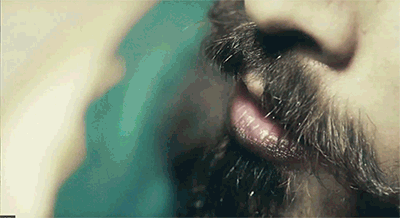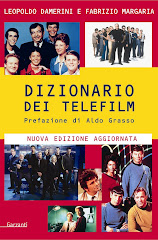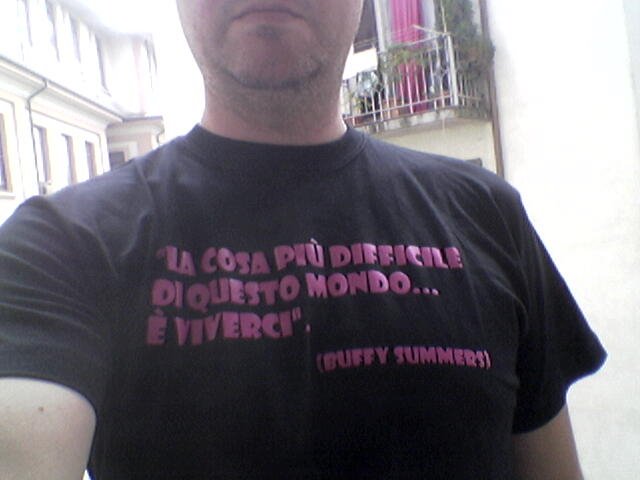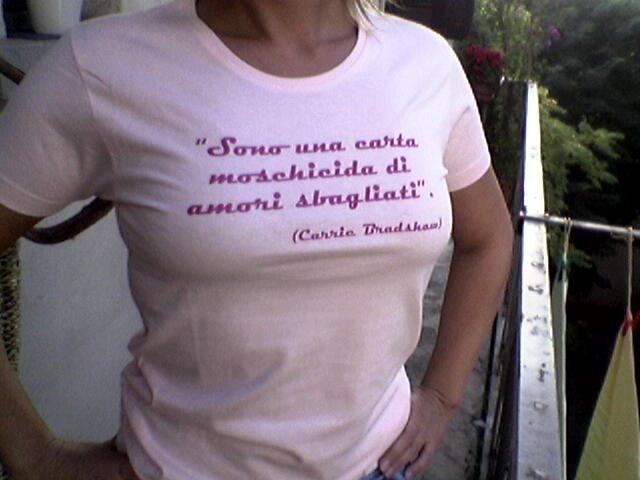So what can you
tell us about the experience of being the leading actress of a sitcom now,
being in television?
ANNA FARIS: I am loving
it. This is, in a lot of ways, the most
satisfying job I've ever had. And I love
the family that the ‑‑ the TV family that we have. I love my cast members. I love the idea that I get to potentially
play a character for an extended period of time. I love it that I don't ‑‑ my character
dates a little bit, but I don't really have a love interest; that my struggle
is one of trying to be a better mom, a better person, and – because for so
long, I think ‑‑ from, like, until you're ‑‑ from, like, 20 to 40 or
maybe longer, most of the roles you have in film, there's ‑‑ revolves
around some kind of love interest.
That's either the goal, or that's ‑‑ you know, you want the guy, or
you have to keep the guy, or you're rolling your eyes at the guy and you want
him to change because he's being such a child or ‑‑ So it's so liberating to not ‑‑ and that's just one of so many
things, but I'm really ‑‑ I'm really loving this. I drive to work every day, and I'm just so
thankful and happy. And so I'm hoping
good things.
Does it feel like
an upside‑down world where film has become a space where predictability has
become a big issue for character and sitcom, which once upon a time we might
have actually thought was exactly that, is now a space where there's some quite
fun and risky things happening?
ANNA FARIS: It's
definitely ‑‑ it is a changing environment, isn't it? And I don't know ‑‑ this is my first
time in TV, so I'm so unfamiliar with how everything works. I'm kind of a moron with that stuff. But I ‑‑ I find this character and the
fact that she gets to evolve as we ‑‑ and we get ‑‑ you know, we're
all still finding who she is, what her past is.
And I find that experience just so rewarding. And you don't get that in film. And I do think finding ‑‑ I think that
for a long time ‑‑ maybe it's ‑‑ maybe it's starting to shift, but
female characters in film, like the kind of roles that I would be up for ‑‑
I'm getting older now, so I'm not necessarily up for them ‑‑ but
were ‑‑ the fear, it always felt like, is the audience going to like this
person? Are the men going to fall in
love with her, and are the women going to want her to be their best
friend? It was always the mantra, I felt
like, of filmmakers in my world ‑‑ in terms of comedy and romantic comedy
I'm talking about ‑‑ that you end up with a very watered‑down, to me, kind
of bland character. So this is ‑‑
this is opposite of that. Does that kind
of sort of ‑‑
Anna, does it
become harder or easier to discuss heavy issues, like in this show, through
comedy? Like alcoholism and single
mother?
ANNA FARIS: I find ‑‑ I
mean, I love it that we deal with these issues.
I love it so much. It's
terrifying. We just had an episode air
about breast cancer. And it's one of
those things, like how ‑‑ how do we deal with breast cancer with ‑‑
but I just ‑‑ I love it that ‑‑ I feel like we're a comedy ‑‑ and
I know this is important to Chuck ‑‑ that has a lot of deep emotional
moments. And I'm hoping that our
audience in turn will become emotionally invested with us and care about our
journey as opposed to dealing with issues of, like, you know, I don't know, the
laundromat's closed or whatever. I mean,
not to knock ‑‑ I love ‑‑ I love everything out there, but ‑‑ But it's very satisfying as an actor, for me, and I hope that our
audience agrees that ‑‑
You probably could have played her without being a mother, but how has the approach to her changed with ‑‑
ANNA FARIS: I feel slightly
more qualified. But I think ‑‑ I'm still learning with my kids on the show
because I have a little baby. So
that's ‑‑ it's a different deal.
But even hanging out with Sadie, who plays ‑‑ Sadie Calvano, who
plays my teenage daughter, during the first few episodes, I was like, I have
not been around a 16‑year‑old in a really long time. And so I think I'm still finding my footing with Christy being a
mom. And I find it ‑‑ it's two very
different worlds. And I think that maybe
that's okay because I think Christy, being newly sober, is still finding
herself as a mom. Like we're dealing
with sort of the storyline of my daughter's pregnancy. And I asked the writers, you know, "Why
isn't my character more mad?," you know.
Like "You're making the same mistake that I made. You're making the same mistake that Bonnie
made. Your dreams, whatever you had,
everything is going to shift now."
And I think that the explanation of why my character isn't more mad is
because she's ‑‑ and who knows?
Maybe in the next episode, I'll get furious. I don't know. But I think that right now she's struggling with so much guilt. So I think she has to, like, swallow a lot of
her anger and try to mend the ‑‑ repair the damage that she's done as a
mom, or at least that she feels that she's done.
What has surprised
you the most about doing television?
ANNA FARIS: Oh, gosh. I think ‑‑ I think how satisfying it is;
how much, as an actor, I feel like I've grown, I think. I think you tend to look at the television
world as, like, maybe not as ‑‑ maybe not as satisfying as the film world,
or maybe you're not playing ‑‑ maybe you're playing, I don't know,
characters that ‑‑ or maybe the journey isn't ‑‑ the vision isn't as
grand or something. I don't know. But I think, for me, this is ‑‑ this has
just been ‑‑ it's been amazing. I
love that ‑‑ shooting in front of a live audience is amazing because I
grew up doing theater, and so it taps into my love for that. But the best part is they laugh at
everything. I mean, they're the most generous ‑‑ I mean, they want to
be there, and they're so generous. And
so you can sort of do no wrong. So it's
kind of the best audience you could have. So I'm just loving it.

















.jpg)
















Nessun commento:
Posta un commento